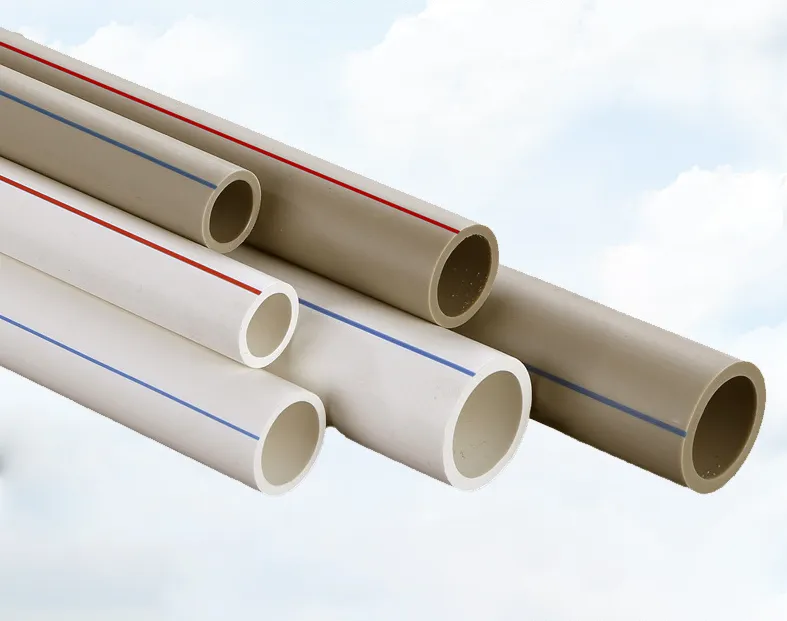Nov . 05, 2024 16:21 Back to list
pvc pipes factory
The Importance of PVC Pipes in Modern Infrastructure
Polyvinyl Chloride, commonly known as PVC, has become an indispensable material in various sectors, with PVC pipes leading the way in infrastructure development. As a widely used synthetic plastic polymer, PVC is known for its durability, low cost, and versatility. This article will explore the manufacturing of PVC pipes, their applications, and the reasons for their growing popularity in the construction and plumbing industries.
Manufacturing Process
The production of PVC pipes begins in specialized factories, where a series of processes are undertaken to convert raw PVC resin into finished products. The primary materials used in the manufacturing process include PVC powder, stabilizers, lubricants, and colorants.
1. Mixing The first step involves mixing the PVC powder with additives to enhance its properties. These additives can include stabilizers to prevent degradation, plasticizers to improve flexibility, and colorants for aesthetic purposes.
2. Extrusion Once the mixture is ready, it is fed into an extruder, where it is heated and melted. The molten PVC is then forced through a die, which shapes it into a continuous pipe form.
3. Cooling After extrusion, the pipes pass through a cooling system, usually involving water baths, to solidify and retain their shape.
4. Cutting and Finishing Once cooled, the pipes are cut to specific lengths and undergo quality control tests to ensure they meet industry standards. Additional processes, such as coating or printing, may be applied for branding or identification.
5. Packaging Finally, the finished PVC pipes are packaged and prepared for distribution to retailers, contractors, or construction sites.
Applications of PVC Pipes
PVC pipes are utilized in a diverse range of applications due to their exceptional qualities. Some of the most common uses include
1. Water Supply Systems PVC pipes are widely used in residential and commercial water distribution systems. Their corrosion resistance and ability to withstand high pressure make them ideal for transporting potable water.
pvc pipes factory

2. Sewage and Drainage In wastewater management, PVC pipes play a significant role. Their smooth interior surfaces minimize friction, allowing for efficient fluid flow. They are also resistant to chemical corrosion, making them suitable for drainage systems.
3. Irrigation Systems Agriculture heavily relies on PVC pipes for irrigation. They are lightweight, durable, and easy to install, making them a favored choice for farmers seeking efficient water distribution solutions.
4. Telecommunication PVC pipes are employed in the telecommunications sector for housing cables and protecting them from environmental damage. Their flexibility and resistance to environmental stress allow for long-lasting installations.
Advantages of PVC Pipes
The increasing preference for PVC pipes in various applications can be attributed to several advantages
1. Cost-Effective PVC pipes are relatively inexpensive compared to alternative materials like metal or concrete. This cost-effectiveness extends to production, installation, and maintenance.
2. Durability PVC is resistant to corrosion, rust, and chemical damage, ensuring a long lifespan of the pipes. This durability reduces the frequency of repairs and replacements, ultimately saving costs for property owners.
3. Lightweight and Easy to Handle PVC pipes are significantly lighter than metal counterparts, making them easier to transport and install. This feature is especially beneficial in remote areas where heavy machinery may be limited.
4. Energy Efficiency The production and installation processes of PVC pipes require less energy compared to other materials, making them a more environmentally friendly option. Additionally, their longevity contributes to reduced waste and resource consumption.
5. Versatility Available in various sizes, colors, and forms, PVC pipes can be tailored to meet the specific needs of different applications, ranging from plumbing to industrial use.
Conclusion
As the demand for reliable and efficient infrastructure continues to grow, PVC pipes stand out as a solution that meets both economic and environmental considerations. The manufacturing expertise found in PVC pipes factories, combined with their advantageous properties, makes them essential components in modern construction and plumbing. As industries evolve, the role of PVC pipes will likely expand, further solidifying their position as a backbone of industry and infrastructure. By choosing PVC pipes, builders and planners are investing in materials that will stand the test of time, ensuring a sustainable future for urban and rural communities alike.
-
High-Quality PVC Borehole Pipes Durable & Versatile Pipe Solutions
NewsJul.08,2025
-
High-Quality PVC Perforated Pipes for Efficient Drainage Leading Manufacturers & Factories
NewsJul.08,2025
-
High-Quality PVC Borehole Pipes Durable Pipe Solutions by Leading Manufacturer
NewsJul.08,2025
-
High-Quality PVC Borehole Pipes Reliable PVC Pipe Manufacturer Solutions
NewsJul.07,2025
-
High-Quality UPVC Drain Pipes Durable HDPE & Drain Pipe Solutions
NewsJul.07,2025
-
High-Quality Conduit Pipes & HDPE Conduit Fittings Manufacturer Reliable Factory Supply
NewsJul.06,2025

